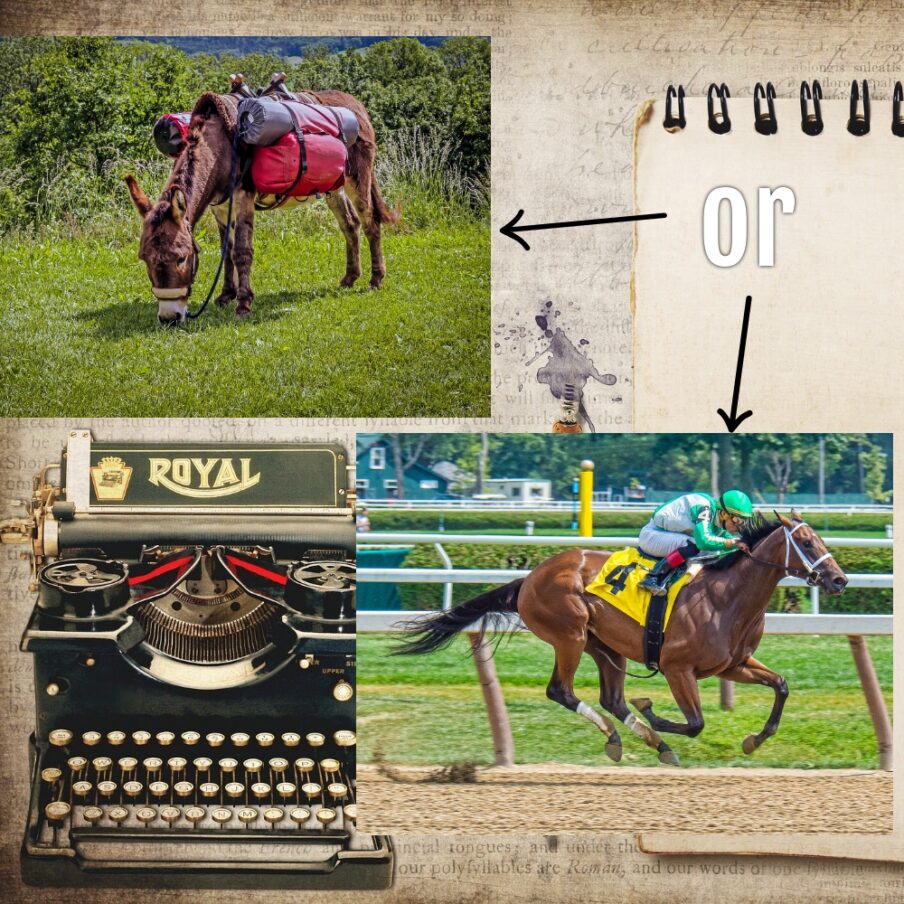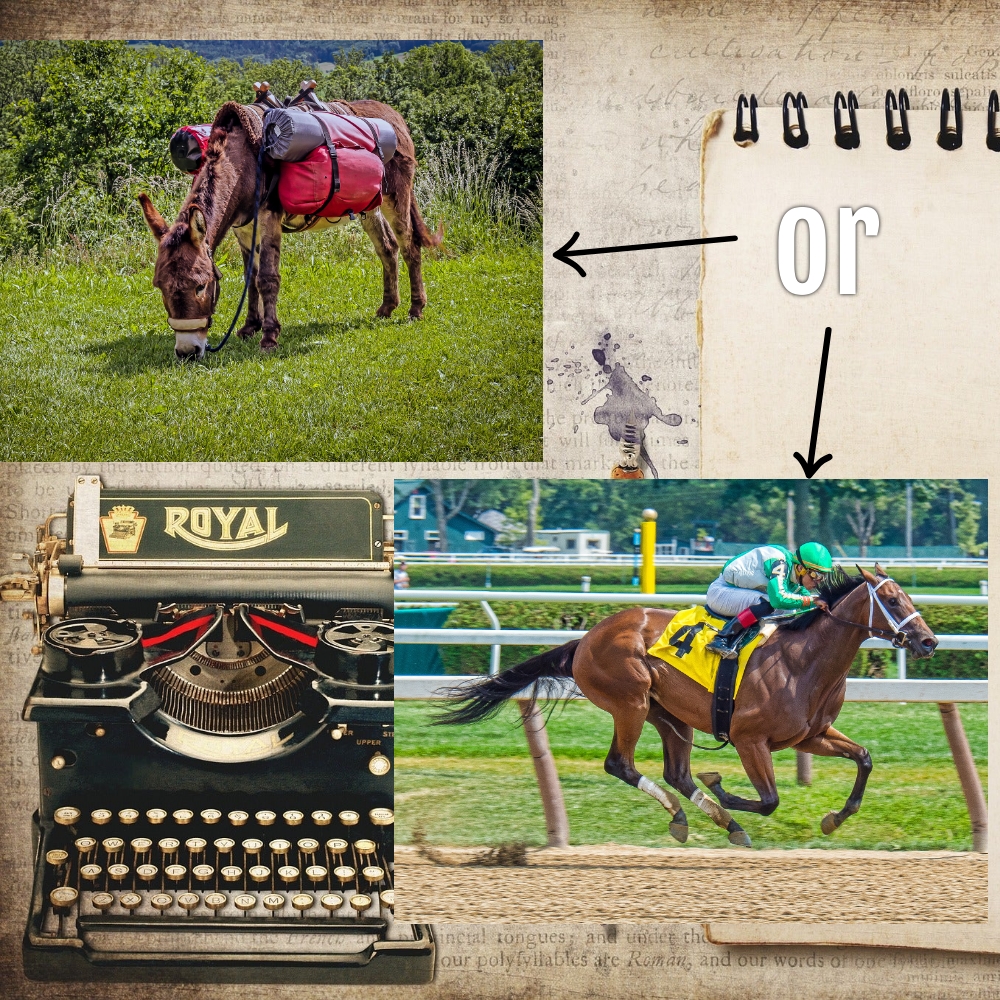By Rebecca Reed, @rebeccareed22
Once-upon-a-time when I was a jockey in Montana, in a much younger body, I rode in several mule races. Several veterans cautioned me as a new rider to lower my stirrups because mules were more stubborn and unpredictable than normal racehorses.
You see, mules aren’t bred to run. The donkey/horse crosses are meant to pull or carry heavy loads through rough terrain. Racehorses are bred and trained to run a range of distances as fast as possible and honed to have a competitive nature.
We writers create stories of varying lengths in a range of genres, but we often burden ourselves with unnecessary loads. Imposter syndrome and comparison, anyone? Following the call to be a writer shouldn’t make you into a pack mule when you were meant to be a racehorse.
As an expert procrastinator, I run myself headlong into complications, then frenetically push to get my blogs, edits, drafts, and contest entries completed on time and submitted––a “mule” mindset––too stubborn to listen to the racehorse that says, “Let’s schedule blocks of time to complete your work rather than goofing off on social media, getting lost in your inbox, or chatting through sprints rather than adding words.”
What I need (and maybe you, too) is more of a “racehorse” model. Why? Because the racehorse’s life is purposeful. If I trade in the contrary writing life of avoidance and instant gratification (mulish), my life might look more streamlined, like the racehorse’s existence.
Let me explain.

A racehorse’s training is well-planned in advance. The trainer sets goals for specific races and gears the training toward those dates and distances. For writers, this might look like a planner with preordained deadlines and blocks of writing time carved out using story math (a la Susan May Warren) to determine how many blocks are required for the word count of your WIP. It might also include planning future books to strategically advance your career.
Once the planning is complete, the racehorse experiences joy because it gets to focus on running. As writers, purposeful planning provides time to create––even when life happens.
The more we hone our craft, seek advice and community, and practice, the smoother our process becomes. We’ll get to “the end” to experience the accomplishment of completion––our finish line. Then, like the racehorse, we recharge to begin the next phase with renewed vigor.
I listened and lowered my stirrups. Of ten jockeys who began the race, I was one of five who crossed the finish line. The rest lay sprawled on the track, their mules bucking and careening in all directions.
You can finish your WIP by remembering you’re a racehorse, not a pack mule. Plan well, so you won’t find yourself bearing the weight of unwritten words as your deadline looms.
Rebecca Reed loves adventure. From riding race horses to sampling the world’s ice cream flavors to writing tales of identity and purpose, she sees obstacles as challenges. A lover of Jesus, animals, and all things Scottish, you might find her coaching track, teaching languages, or listening to audiobooks on her rural Indiana farm. As a wife, the mother of 4 adult children plus 2 exchange students and a huge, fruit-eating canine, and grandmother of 3, she’s learned to embrace joy where she can find it––in life’s unexpected moments and inside a good story. Connect with Rebecca on her website: rebeccareedwrites.com and sign up for her monthly newsletter where she shares her worlds with readers. Follow her on social media via her linktr.ee/rebeccareedwrites
Check out the Podcast and YouTube Channel she co-hosts with the amazing Rebecca Yauger @ https://www.youtube.com/@RebeccaandRebecca for a little R&R reviewing books and chatting with authors.



Comments 1
This analogy between a pack mule and race horse is brilliant! I always enjoy your posts.